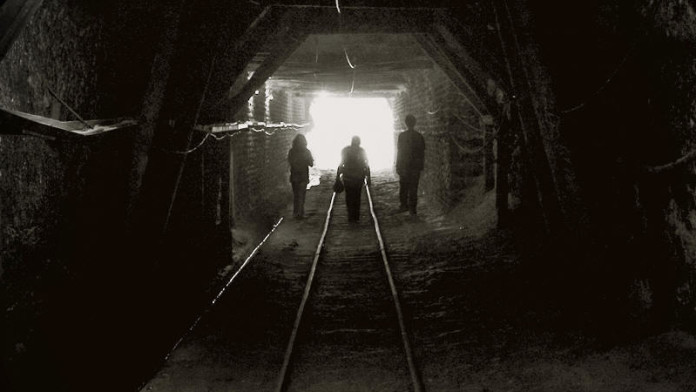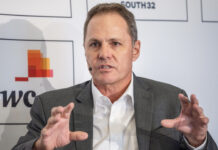
A MINE can take at least a decade to build. One rule of thumb is that a mineral deposit discovered during the exuberance of one commodity cycle is not converted into metal until the optimism of the next. There are several reasons for this. Onerous permitting standards are one; capital funding and technical challenges are others. It’s partly why cycles exist.
The 17 years spent developing Wesizwe Platinum’s Bakubung mine in North West does not seem excessive in mining terms. Brought to the market in 2008, Bakubung — appropriately situated on the doorstep of the gambling hot spot Sun City — was forecast to begin production in 2018.
Where eyebrows have been raised, however, is that put into commissioning, the project’s nameplate capacity of 420,000 ounces a year still seems a distant prospect. This was due partly to the Covid disruptions of five years ago, which hit many miners, but for Wesizwe the problems continued.
The company was forced to lay off staff during platinum’s latest cyclical downturn between 2022 and 2025 — which worsened already poor relations with Wesizwe’s labour in general. Three strikes, one of them an illegal underground sit-in, further hampered Bakubung’s ramp-up. Technical problems also emerged around this time. Bakubung’s mining method was changed; then the company ran into problems with the mine’s concentrator.
Board turnover has also been high. One non-executive director resigned in August 2024 and another four stepped down this year. In March, a cyber attack crippled Wesizwe’s systems, the effects of which continue. A dispute with the South African Revenue Service is also dragging on.
Wesizwe spokesperson Itumeleng Mogale said the cyber attack is the reason the firm failed to post its interim numbers to end-June, which led to the suspension of its shares on the JSE. It was previously suspended for late filing of its 2024 annual statements. When they were published — in September — auditor SNG Grant Thornton raised a flag over Wesizwe’s going-concern status. It had previously qualified Wesizwe’s numbers in October 2024.
Bakubung has been bankrolled by China since 2010, when the China-Africa Development Fund and Jinchuan first appeared as investors. A $650m loan was secured for Wesizwe in 2013 in return for a 45% stake — today held by China-Africa Jinchuan Investments — and management control. The balance of Wesizwe’s shares are held by Rustenburg Platinum Mines, a subsidiary of Valterra Platinum; empowerment interests; and institutions, according to Wesizwe’s annual report.
Commissioning may have been Wesizwe’s biggest problem, but there have also been governance-related issues. In 2010 allegations emerged of misappropriation of hundreds of millions of rand in funds for the Bakubung-ba-Ratheo, the mine’s empowerment partner, which harmed Wesizwe Platinum’s reputation for years.
Mike Solomon, once a negotiator for the government in the early years of mining empowerment, was forced out as CEO in a high-profile, rancorous dispute in 2010. CEO turnover has been significant since then. Miningmx counts five, equal to an average tenure of just under three years.
In terms of transparency, Wesizwe has dropped off the radar. The company doesn’t present its numbers, and investor contact appears minimal. Analysts and former senior employees at Wesizwe describe the company as an enigma. “It’s a black hole,” said an analyst.
As a result, there’s less than ideal visibility on the project’s prospects, especially on how it will continue to be funded. Wesizwe is thought to have exceeded a funding cap of about $1.5bn and therefore needs further financial support. However, procuring the funds requires the approval of China’s National Development & Reform Commission. So far, that has not been forthcoming. There’s reticence to convert debt to equity, a source tells Miningmx. “I think the Chinese have simply stopped funding it,” he added.
The JSE, asked for details regarding Wesizwe’s suspension, said it doesn’t comment directly on company matters.
But Mogale insists the Chinese investors are on board. “Our majority shareholder and funder remains fully committed to the Bakubung project,” she said. Wesizwe “continuously evaluates strategic options to enhance liquidity and strengthen the project’s capital structure”, she added.
Analysts raised the possibility of an M&A transaction involving neighbour Impala Platinum. But Implats spokesperson Johan Theron said there are no such plans, as does Mogale. “There is no introduction of a third-party partner at this time and any material developments will be disclosed through the appropriate regulatory channels,” she said.
Infrastructure critical for Bakubung is being developed, and ramp-up is progressing, Mogale said. Underground mining contracts are being negotiated.
“We remain confident that our funding strategy, together with operational improvements at Bakubung and strengthened executive oversight, will enable the company to meet its obligations and stabilise its balance sheet,” she added.
A version of this article first appeared in the Financial Mail.











